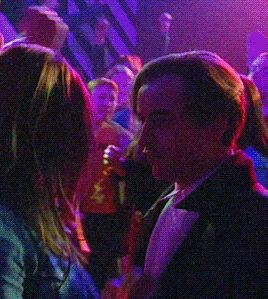(Psi)SeveredHead
Adventurer
I think you would have a hard time for some races. Halflings are especially difficult, since they were intended to be short humans without any powers. The biggest difference is a higher metabolic rate (so they eat more). From what I see of your previous work, you gave them a completely different origin story, which certainly makes them different, but might change them too much. I like what Dark Sun did to them. They don't have special powers, they just have a very different culture.However, there is a solution: Have racial mechanics impact a race's/lineage's culture.
This isn't a even new concept. However, it is often a rare one, and it can also be difficult to design cultures based on racial abilities. However, it's possible, and can be done in compelling and unique ways. Notably, Eberron often does this, through the Warforged, Changelings, Kalashtar, Dragonmarked Races, and plenty of other examples. Try taking the culture of Warforged and applying it to Humans. It doesn't work. Try it with Changelings or the Kalashtar. It doesn't work. Keith Baker (and the other designers of Eberron's cultures) largely succeeded in creating races that have cultures that can't be straight up transplanted onto Humans or any other race. It just plain doesn't work. Kalashtar won't have the same culture without their psychic abilities and bond with refugee Quori, Warforged can't be Warforged if they weren't Forged for the Last War and then set free through the Treaty of Thronehold, and Changelings can't be Changelings without being shapeshifters. They're unique, they're interesting, and most importantly, they're racially dependent.
I did something similar with the two homebrew races of mine that I mentioned in the Halfling thread; the Vezyi and the Felshen. The Felshen were basically a race of lab-made sentient Flesh Golems that became fully sentient, could reproduce as the other races could, and their alchemically and magically altered/engineered brains granted them innate sentient powers (which then caused them to go to war as a goblinoid society of psionic-hating mages tried to eradicate them from the world). They've even discovered how to make psionic innovations, like Dream Hubs, "telephone poles" that increase the range of their telepathy, mental libraries stored in giant crystals, and similar creations. The Vezyi are death-touched Vecna worshippers that get "free" resurrections from their Death Priests (called Iremongers), which is largely dependent on their racial ability that lets them be resurrected after the normal amount of allotted time that resurrection spells allow (it's actually 10x the normal duration, so revivify works on Vezyi that have been dead for 10 minutes, raise dead works on Vezyi that have been dead for 100 days, and true resurrection works on Vezyi that have been dead for 2,000 years). They live in the Underfell (the Underdark of the Shadowfell), not eating, drinking, sleeping, or breathing, their only purpose in life is to serve Vecna, and once they run out of free resurrections (called "pardons", which they get 9 of), their bodies and souls are turned into undead thralls in Vecna's fell army. These race's intricate cultures are dependent on their racial abilities, and their cultures even accept races that have similar enough racial features to function in their societies (Felshen accept all benevolent psionic races/subraces/lineages/monsters; such as gemstone dragons, dragonborn, and golmeng, dragonborn, verdan, ghostwise halflings, flumphs, gnome ceremorphs, and so on. The Vezyi accept Reborn, Dhampir, and Fehntüm (incorporeal-undead-touched humanoids) that worship Vecna and his pantheon of demigods).
If a race/lineage's culture is dependent/influenced by their racial abilities, you can get some awesome and diverse cultures that aren't possible through replacing them with humans.
What do you guys think? Do you think D&D is up for changes to racial cultures like this? What issues with this could you see happening? Are there any other issues that this solution also solves? Have you done stuff like this before, and how did it go? Also feel free to discuss possible changes to the cultures of the main D&D races to make these even more apparent (there is a bit of this built into the core game, like dwarves drinking lots of alcohol because of their poison resistance and elven lifespans influencing their behavior, but I feel like it could/should be much more in-depth for many/most of them).
Thanks for reading, and hopefully the discussion stays constructive and interesting below.
The greater the difference between a race and humans, the easier it is to make them different. In LotR, elves were actually very different from humans. It's even easier for newly created species since there's no legacy interfering with them. But that brings up a game balance issue. Humans don't have special powers, while any race with lots of abilities like not needing to eat, drink, or sleep, are going to be simply more powerful.



